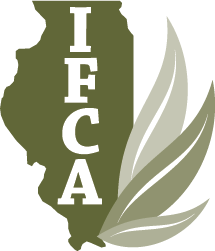Floaters: To License or not to License
The Illinois Vehicle Code has a special section pertaining to self-propelled implements designed for the application of plant food and agricultural chemicals. If you drive down the highway loaded with fertilizer or agrichemicals, you must license the vehicle. If you always transport it empty and tender it at the field, it does not need to be licensed. Remember that if you do choose to put on a load, in addition to the license you must burn clear, taxable diesel fuel because the plate signifies that it is registered for highway use. Under no circumstances, empty or full, can you exceed 36,000 lbs, be more than 12 feet wide and travel faster 30 miles per hour. If you exceed any of these parameters you are no longer considered an implement of husbandry and the driver would need a CDL as well as the vehicle would have to comply with all the commercial motor vehicle regulations.
If you purchase a new floater and go to the SOS office, they will tell you that you need to get a license plate. We have a friendly disagreement with their interpretation of the regulations and will be working cooperatively with the SOS next year to clarify the statute with regard to floaters and sprayers. If you never intend to haul a load with your floaters, you don't need to ask the SOS the question about a license plate in the first place. But if you do ask, you may not be able to leave without having to pay for a plate. If you have any questions about this, please contact Jean Payne.
If you purchase a new floater and go to the SOS office, they will tell you that you need to get a license plate. We have a friendly disagreement with their interpretation of the regulations and will be working cooperatively with the SOS next year to clarify the statute with regard to floaters and sprayers. If you never intend to haul a load with your floaters, you don't need to ask the SOS the question about a license plate in the first place. But if you do ask, you may not be able to leave without having to pay for a plate. If you have any questions about this, please contact Jean Payne.
